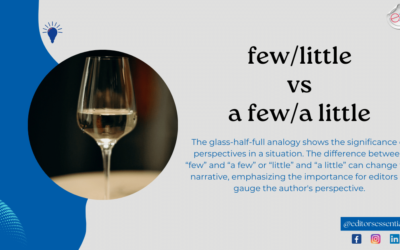The moment you started typing since, Google will suggest since vs because. Such is the power of this pair of words. The confusion stems from the fact that since and because are interchangeable, though not always. In fact, there is no confusion most of the times. Perhaps people were asked to clarify when there was ambiguity. As in most of the stories, these exceptions became the norm and changing since to because to express reasoning was always expected.
Now, why is the confusion? Because since can be an adverb, preposition, or a conjunction; because is only a conjunction (of course, Merriam-Webster, for example, lists this as a preposiiton, but it is an informal usage). As you can see, as the only place where these two cross their lives is as conjunctions. So in order to understand the “rule”, let’s rule out the other two possibilities: being an adverb or preposition. Let’s consider the following sentences:
It has been raining incessantly since Diwali eve.
The rain started on Diwali eve and we haven’t stepped out of home since.
You can easily find that since is a preposition in the first sentence; there is an object of preposition (Diwali eve). Since as an adverb will not have one. You may also have noted that the object of the preposition since is the answer to the question “when”? Some more examples with since as a preposition:
We haven’t partied since your birthday party. (Since when? Since your birthday party)
The industry has continuously reinvented itself since the market slump. (Since when? Since the market slump)
Since as an adverb:
The original building has long since (= long before now) been demolished. (from Oxford Advanced Learner’s Dictionary)
There is no “since when?” here.
A point worthy of note is, since is associated with perfect tense in both these cases. Have you noticed it: has been raining, haven’t stepped out, haven’t partied, has reinvented, has been demolished?
So with these constructions you need two points of time, to denote a duration. The temporal references can both be in the past or beginning in the past extending till the present time.
Now to the central point of our discussion: since as a conjunction, a subordinating conjunction at that. By definition, then, since introduces a subordinate clause. The moment you see a subordinate clause following since you know that the function is as a conjunction, not otherwise. Once again, let’s consider a pair of sentences with since as a conjunction to understand when it can mean because:
Since it rained on Diwali eve, this Diwali was far less enthusiastic, at least on the Diwali day. However, people have celebrated with fervour since it stopped raining.
Noting that the first sentence doesn’t have a perfect/simple present tense combination, you can conclude that since in the first case reasons why Diwali was far less enthusiastic. By a similar logic, since in the second sentence denotes a point of time in the past. But the conclusion one can drawn from the second sentence is not as clear as the first one. The context helps then.
Some points to ponder when you come across since in a sentence:
- If what follows since is a phrase and if an answer to the question “Since when?” exists, then since is a preposition. The answer is the object of the preposition.
- If what follows since is not a clause and there is no answer to the question “Since when?”, since is an adverb.
- If the since-clause is written in perfect tense and answers the question “Since when?”, since is a conjunction denoting a point of time.
- If the since-clause is written in a tense other than perfect tense and answers the question “Why?”, since is a conjunction and can be safely replaced with because.
- If the since-clause is written in perfect tense and answers both questions “Since when?” and “Why?”, god save you. Look for some clue from the context.




0 Comments
Trackbacks/Pingbacks